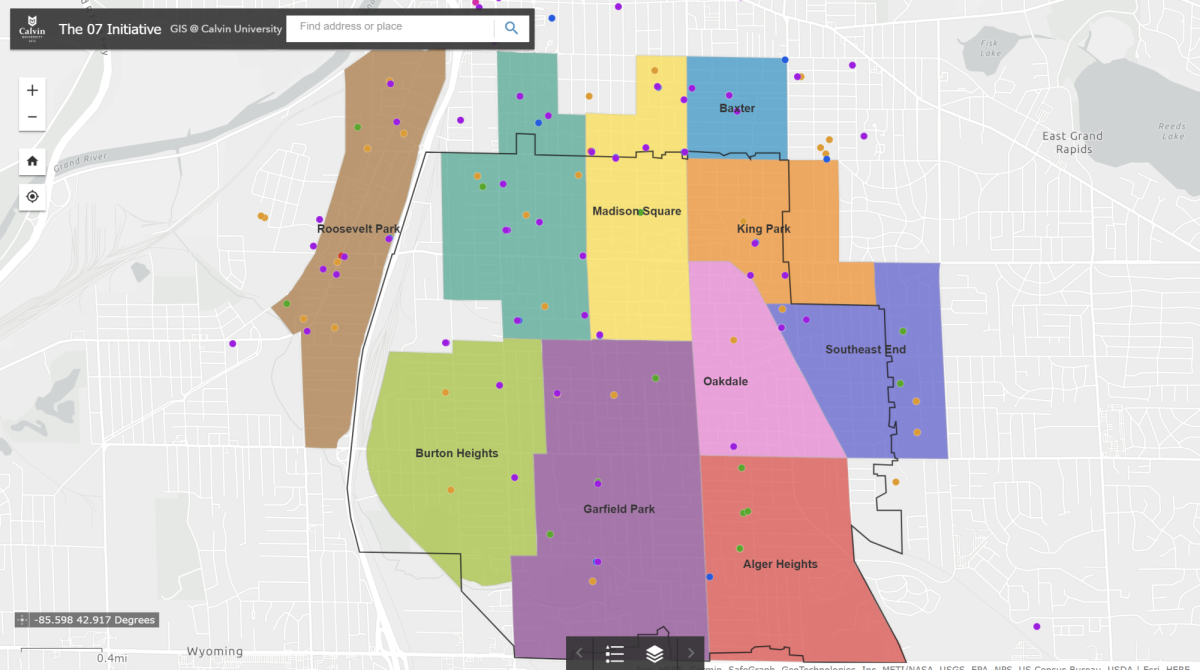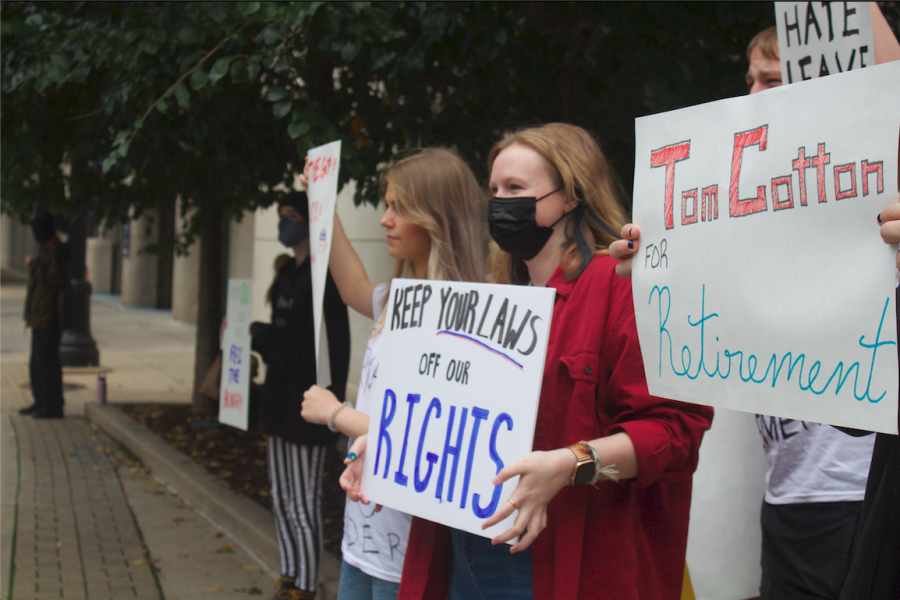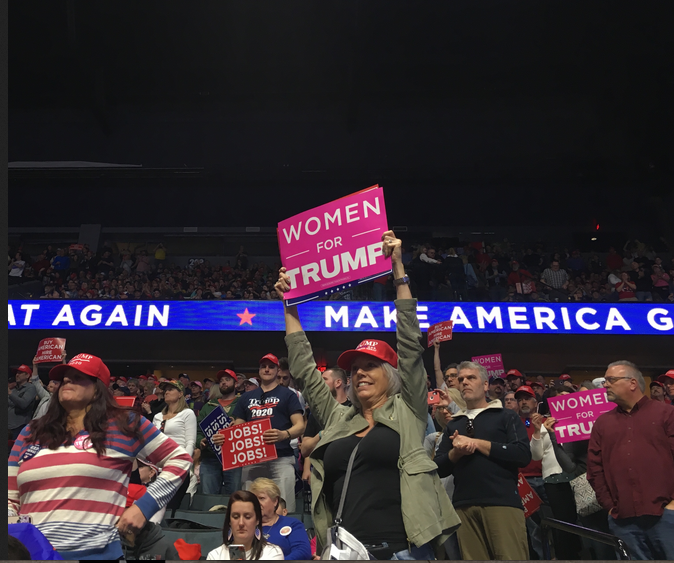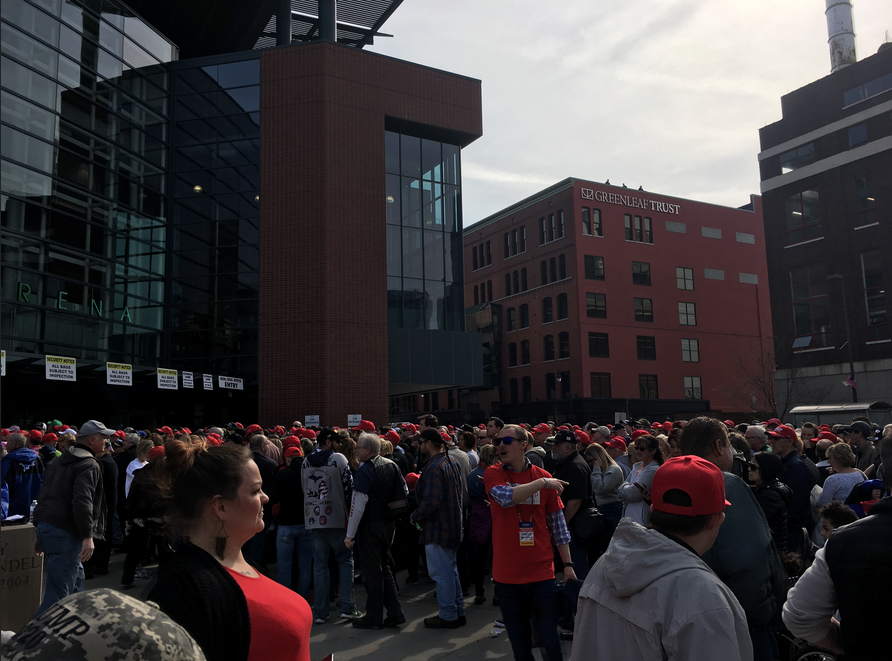Amidst racial tension and upheaval across the country in cities from Ferguson to Baltimore, the YWCA is taking steps towards solidarity against racism in cities throughout the nation with its Stand Against Racism event.
Calvin served as one site for the event, which took place this past Thursday and Friday, April 23 and 24.
Racism continues to be an issue in Grand Rapids. According to the 2010 U.S. Census, Grand Rapids is the 26th most segregated city in the nation.
Striking racial differences in Grand Rapids that were found by the 2014 VoiceGR survey, which is supported through Grand Valley State University’s Johnson Center, seeks to assess greater Grand Rapids residents’ attitudes, perceptions, opinions and demographic disparities within responses.
According to the study, there were significant differences between white and non-white respondents in their ability to afford to meet their needs “very” or “fairly” well based on their current income, as well as their rating of Grand Rapids as a place to live.
“It’s not enough to say that racism doesn’t exist because I don’t see it. There’s lots of documentation about racial disparities,” said Michelle Loyd-Paige, interim executive associate to the president for diversity and inclusion. “The city of Grand Rapids is one of the most segregated cities in the United States.”
Despite racism’s prevalence, awareness of it in Grand Rapids remains relatively low. Eleven percent of Grand Rapids respondents reported racism being very much an issue in their community, while 33 percent stated that it was somewhat an issue in their community, according to the study.
Taking intentional steps to end a lack of awareness on the topic, the Stand Against Racism is “designed to build community among those who work for racial justice and to raise awareness about the negative impact of institutional and structural racism,” according to their website.
The Calvin event consisted of a Racism 101 event on Thursday and a pledge signing on Friday, which got over 500 signatures “We’ve been doing the signature drive for three years and this is the most signatures we’ve gotten,” said Loyd-Paige.
Poster boards, which say “I Stand Against Racism,” were set up in Johnny’s and the library lobby and were available for passing students to sign.
By signing, students took a pledge which includes statements such as, “I pledge to look deeply and continuously in my heart and in my mind to identify all signs and vestiges of racism.”
“The purpose is to raise awareness that we can all, no matter who we are, do something about racism,” said Loyd-Paige. It’s about “treating everyone with respect and dignity.”
“It’s not just a campaign against or for a group of people but it’s just trying to raise awareness for anyone,” she explained.
When asking people to sign the board, she said, “We have a continuum of responses. We have people who find their way to come and sign the board and that is just exciting. On the other end you have people who say, ‘No, I don’t want to do that.’ It just makes you wonder why.”
The pledge, she said, is “just about raising awareness that if we’re going to see an end to racism it’s not just about somebody else doing something, but about us doing something.”
“It’s good to be mindful that racism is still an issue in our country and ignoring racism won’t make it go away. If we are making a commitment to do what we can, we will become more knowledgeable about how we are either victims or beneficiaries of racism.
Simply signing the pledge shouldn’t be the end of the matter for students.
For Calvin students to accomplish this, to stand against racism, Loyd-Paige said, “It’s just becoming more aware, checking your language, paying attention to things that are around you.”
Loyd-Paige said we must ask ourselves, “What are we fearful about when having conversations about race?”
“Often for white people it’s the fear of saying something that’s offensive,” she explained. “For people of color it’s the fear of having our experience dismissed.”
But, she also said we can ask ourselves, “Why do you want to have these kinds of conversations? How can this help you be a better person, have a better impact on your world, whatever the area you’re going to be studying?”
“We’re just saying that as individuals we’re going to work for peace. Who doesn’t want to work for peace?”
But, she said, “Even as an expert there’s still a lot that I need to learn in order to make a difference. … I know I’m not the one who is going to bring reconciliation, only God can do that.”








